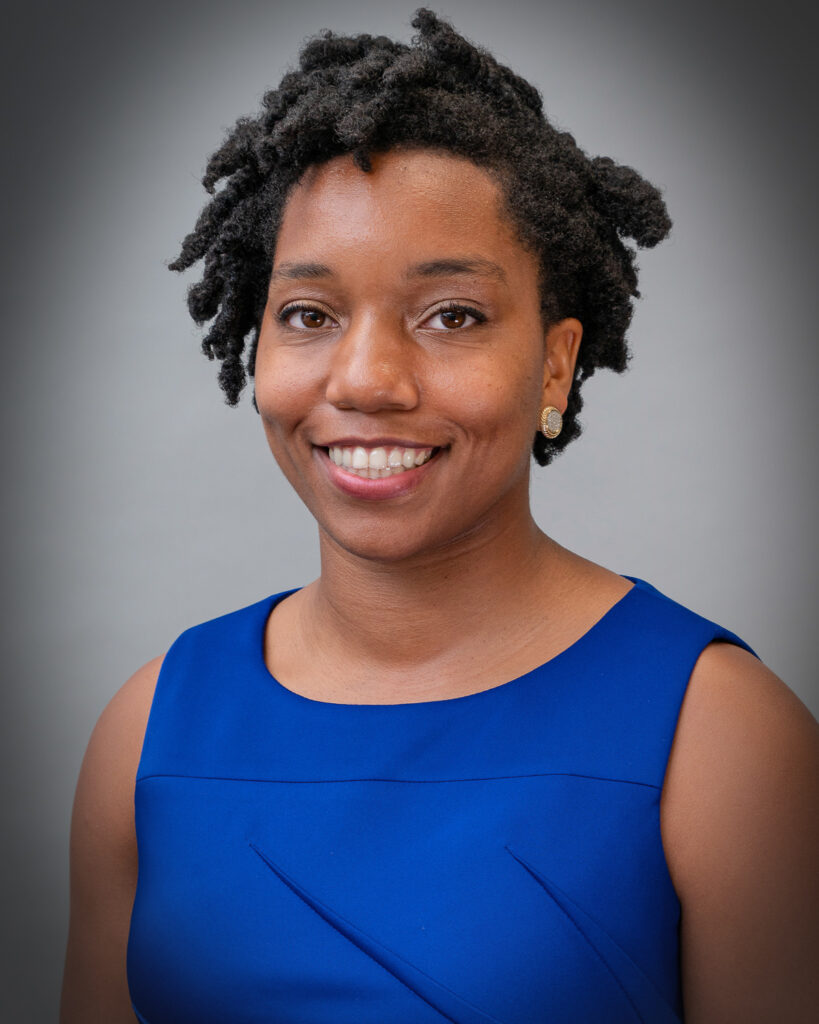 On Carnegie Mellon University Week: As temperatures rise, energy poverty could soar with them.
On Carnegie Mellon University Week: As temperatures rise, energy poverty could soar with them.
Destenie Nock, assistant professor in civil and environmental engineering, looks into the energy equity gap.
Dr. Destenie Nock is a leader in energy justice and equitable energy transitions. In her role as an Assistant Professor in Civil & Environmental Engineering (CEE), and Engineering and Public Policy (EPP) she leads a team of researcher who create optimization and decision analysis tools which evaluate the sustainability, equity, and reliability of power systems in the US and Sub-Saharan Africa. One of her current projects include developing a framework for understanding the sustainability and equity trade-offs for different power plant investments. Another project involves quantifying the air pollution emissions associated with electric transmission and distribution systems. Dr. Nock holds a Ph.D. in Industrial Engineering and Operations Research from the University of Massachusetts Amherst, where she was an NSF Graduate Research Fellow, and an Offshore Wind Energy IGERT Fellow. She earned a MSc in Leadership for Sustainable Development at Queen’s University of Belfast, and two BS degrees in Electrical Engineering and Applied Math at North Carolina A&T State University. She is the creator of the Black Electricity Blog site which posts articles about graduate and undergraduate advice, and research updates in energy and sustainability.
Energy Poverty
My research group investigates how energy poverty will be affected by energy transitions, and creates methods for identifying who is experiencing energy poverty. When people hear the word poverty, they usually think of people who have trouble affording their basic needs. In the energy space, most people assume an individual is energy poor if they spend more than 6% of their income meeting their energy needs. The problem is that this assumes everyone is spending all the money they need to keep their house at a comfortable temperature, cook, and use all of the other electricity appliances we have become dependent on. This misses the people who use space heaters, and their ovens to heat their homes due to high natural gas and oil prices. And what about the people who keep their houses really hot in the summer because they cannot afford electricity?
In my research group we have created an energy poverty metric called the energy equity gap, which identifies the households that are cutting their electricity consumption to reduce their financial burden. The energy equity gap is based on the difference in outdoor temperatures at which members of differing income groups are likely to start using their AC. We find that the energy equity gap between low and high-income groups ranges from 4.7°F to 7.5°F, meaning on average low income households wait seven degrees longer to turn on their AC units.
Some households will even wait until it is above 80 degrees. This puts them at risk of heat-stroke and heat-exhaustion. Forgoing air conditioning also increases the humidity in the house meaning the occupants will be at greater risk from mold, asthma, and allergens. We hope this new dimension of energy poverty will be used, in addition to traditional income-based energy poverty metrics, to reduce the number of people suffering from energy poverty.
Read More:
- Personal Website: https://destenienock5.wixsite.com/destenienock
- Link to Academic Publications: https://scholar.google.com/citations?user=PSZN_hMAAAAJ&hl=en
- How Dr. Nock is creating tools for equitable energy: https://engineering.cmu.edu/news-events/news/2020/05/26-nock-energy-planning.html
- Nock explores energy transition objectives in developing countries: https://engineering.cmu.edu/news-events/news/2021/03/19-energy-justice.html
